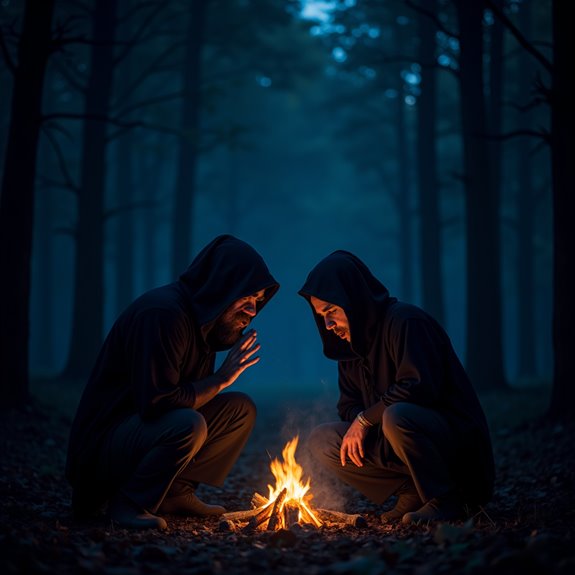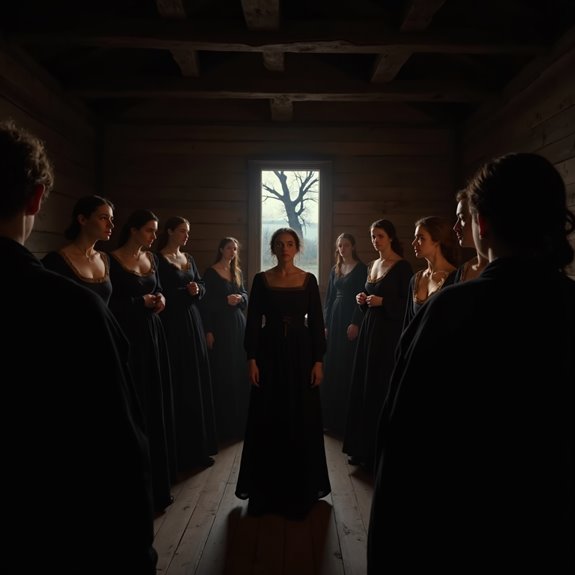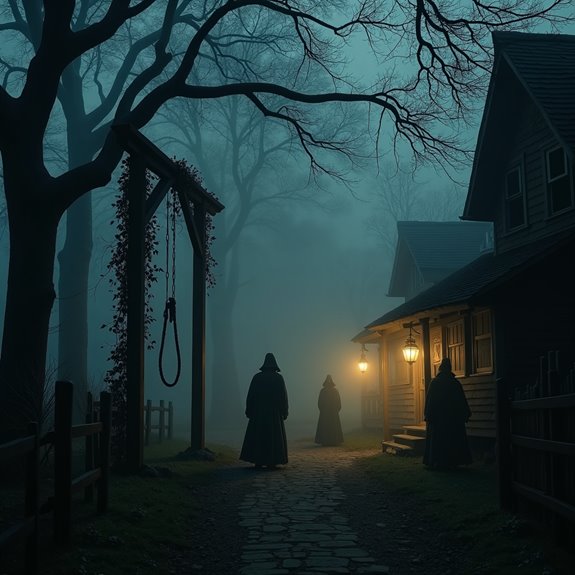Was There Really a Witch War in Colonial New England?
The idea of a “Witch War” in Colonial New England raises questions about societal fears and tensions during that period. In a community driven by Puritan beliefs, accusations of witchcraft spiraled into chaos. The infamous Salem Witch Trials serve as a stark example. But was this really a war, or simply a reflection of deeper societal struggles? Understanding the dynamics at play reveals much about the era’s mindset and its tragic consequences.
Introduction

The witch trials in Colonial New England emerged from a complex mix of fear, superstition, and social upheaval. As the colonies faced hardships like disease, war, and economic strife, communities grew anxious and desperate. Many residents sought to identify scapegoats for their troubles, leading to the scapegoating of supposed witches. This heightened paranoia laid the groundwork for a frenzied hunt, creating a climate where accusations spread rapidly and often without substantial evidence. Individuals, driven by paranoia and a desire for control, exploited the trials for personal gain, further fueling the chaos. Ultimately, this perfect storm of dread revealed the fragile nature of trust and social cohesion in a world fraught with uncertainty, making the witch trials a disturbing chapter in Colonial New England’s history.
Puritan Beliefs and Social Tensions

Fear and suspicion permeated the fabric of Puritan society, where strict religious beliefs often dictated daily life. The Puritans upheld a rigid moral code, emphasizing piety, hard work, and community conformity. Those who deviated from accepted norms, whether through personal behavior or differing beliefs, became targets of scrutiny. Social tensions simmered beneath the surface, fueled by rivalries and economic competition. This atmosphere created a breeding ground for accusations, as neighbors turned against each other in times of distress. Questions of witchcraft gained traction, casting a long shadow over relationships. Fear of the unknown—a mix of superstition and community strife—fueled paranoia and further fragmented the fragile social order, making the colonists more susceptible to hasty judgments and accusations of witchcraft.
Notable Cases or Sightings

Underlying tensions and suspicions in Puritan communities often sparked notable cases of witchcraft allegations. One of the most infamous examples occurred in Salem during 1692, where a wave of hysteria led to the trial and execution of multiple individuals. Accusations often stemmed from personal vendettas; neighbors pointed fingers amidst property disputes and social rivalries. For instance, Tituba, an enslaved woman, faced charges that ignited the frenzy, as her confession inflamed fears. Additionally, the case of Rebecca Nurse showcased how a respected elder could fall victim to collective paranoia, despite her piety. Meanwhile, in Connecticut, the Hartford Witch Trials of the 1660s also highlighted similar patterns of scapegoating, illustrating the pervasive anxiety surrounding witchcraft in colonial society.
Common Theories or Explanations
As accusations of witchcraft spread like wildfire, several common theories emerged to explain the phenomenon. Some attributed the fervor to social tensions, noting that communities were often divided by class or individual rivalries. Others pointed to the psychological effects of fear and paranoia, suggesting that people projected their anxieties onto vulnerable neighbors. Additionally, some historians argue that religious fervor and the rigid Puritan beliefs fostered a heightened sense of moral panic. Economic factors, such as land disputes or hardships, also played a role, as accusations could serve to eliminate perceived threats. Finally, some theorists propose that ergot poisoning from contaminated grain might have caused hallucinations, contributing to the chaos that defined this tumultuous period in colonial New England’s history.
Frequently Asked Questions
How Did Witch Trials Affect Family Dynamics in Colonial New England?
The witch trials strained family dynamics in colonial New England. Families faced distrust and division, as accusations tore them apart. Parents feared for their children, while siblings found themselves in conflicting loyalties, leading to lasting trauma.
Were Any Witches Actually Executed During This Period?
During the witch trials, several individuals faced execution, with around twenty confirmed deaths attributed to the hysteria. Their tragic fates reflected the intense fear and paranoia that gripped communities in that tumultuous period.
What Role Did Women Play in These Witch Hunts?
Women often faced the brunt of witch hunts, accused frequently due to societal fears, jealousy, or rivalry. They were scapegoated for misfortunes, with many executed, highlighting the gender biases that fueled these tragic events.
How Did Neighboring Colonies React to the Witch Trials?
Neighboring colonies expressed concern over the witch trials, criticizing Massachusetts for its harsh methods. They worried about the implications for their own communities, fearing a similar outbreak of hysteria and injustice might spread into their territories.
What Modern Events Are Influenced by the Witch Trial Legacy?
Modern events like public trials, discussions on justice, and debates about due process often reflect the legacy of the witch trials. Scholars note how societal fears and scapegoating still resonate in today’s legal and social landscapes.


